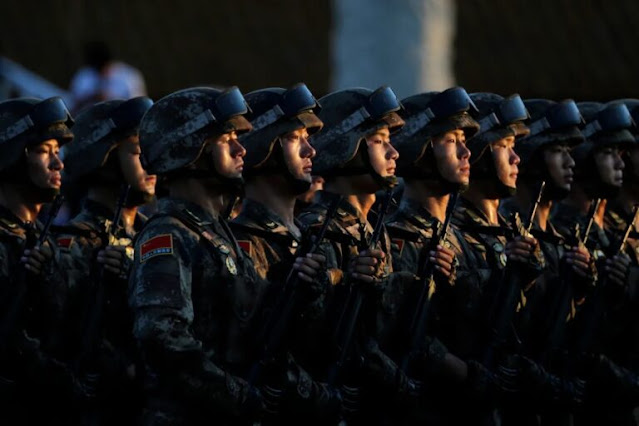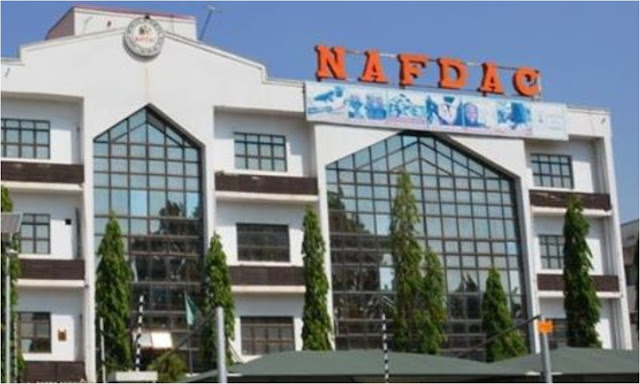On August 29, 2025, China marked the 80th anniversary of its victory in the Chinese People’s War of Resistance Against Japanese Aggression and the World Anti-Fascist War with a series of poignant documentaries, commemorative events, and international forums. These initiatives reflect China’s commitment to honoring its historical sacrifices, preserving the memory of its heroes, and reinforcing the global call for peace and cooperation. The commemorations, which include a grand military parade, thought-provoking documentaries, and diplomatic engagements, serve as a reminder of the resilience, sacrifice, and unity that defined the era, while also offering lessons for future generations in a world still grappling with the challenges of conflict and division.
A Multifaceted Commemoration
The centerpiece of China’s commemorative efforts is a collection of documentaries that explore various dimensions of the war, bringing to life the stories of those who fought, suffered, and persevered. These films, produced with meticulous attention to historical accuracy and emotional depth, include The Sinking of the Lisbon Maru, World War II: Remembered, Reimagined, Retold, The Canvas that Speaks, and The Compass of History. Each documentary offers a unique perspective, weaving together narratives of sacrifice, resilience, and the enduring human spirit.
The Sinking of the Lisbon Maru recounts the tragic yet heroic episode of a Japanese transport ship carrying Allied prisoners of war, which was sunk by an American submarine in 1942. The film highlights the bravery of Chinese fishermen who risked their lives to rescue survivors, showcasing the humanitarian spirit that transcended national boundaries during the war. World War II: Remembered, Reimagined, Retold takes a broader view, examining the global impact of the conflict through personal stories and archival footage, emphasizing the interconnectedness of the anti-fascist struggle across continents.
The Canvas that Speaks stands out for its artistic approach, focusing on the work of Russian artist Marina Nechaeva, whose paintings draw inspiration from her family’s wartime experiences. The documentary explores how art can serve as a medium for processing trauma and preserving memory, offering a deeply personal lens on the war’s lasting impact. Finally, The Compass of History provides a reflective narrative, tracing the geopolitical shifts that emerged from the war and their relevance to contemporary global challenges.
Speaking on the significance of these productions, Huang Jiyuan, a host at China Global Television Network (CGTN), emphasized the importance of viewing history not as a distant, abstract record but as a living tapestry of human experiences. “History is not a cold list of the past,” Huang said. “It is the lived experiences of real people, filled with sacrifice and legacy. These documentaries remind us of the cost of war and the value of peace.” Huang’s remarks underscore the emotional resonance of the films, which aim to connect modern audiences with the struggles and triumphs of those who lived through the war.
A Military Parade and Diplomatic Reflections
As part of the commemorative activities, China will hold a grand military parade on September 3, 2025, in Beijing. The parade, a symbol of national pride and resilience, will showcase China’s military strength while honoring the sacrifices of its soldiers and civilians during the war. Vice Foreign Minister Ma Zhaoxu, in a press briefing, described the anniversary as a pivotal moment in China’s history. “This is a turning point where China emerged from a national crisis and made decisive contributions to the global victory against fascism,” he said. Ma highlighted China’s role on the Eastern front, where its prolonged resistance against Japanese aggression tied down significant enemy forces, contributing to the broader Allied victory.
Ma also emphasized China’s commitment to peace in the modern era, rooted in the principles of coexistence, mutual respect, and multilateral cooperation. He noted that the lessons of the war remain relevant today, as the world faces new challenges to global stability. “The victory in the anti-fascist war was a triumph of justice over aggression,” he said. “China will continue to uphold peace through dialogue, cooperation, and shared prosperity.” His remarks reflect China’s broader foreign policy, which seeks to position the country as a leader in promoting global harmony and stability.
Global Outreach: The Nigerian Connection
The commemorations extended beyond China’s borders, with events organized in collaboration with international partners. In Nigeria, the Chinese Consulate in Lagos partnered with the Nigerian Institute of International Affairs (NIIA) to host a forum marking the anniversary. The event, held at the NIIA’s headquarters, brought together diplomats, scholars, and community leaders to reflect on the war’s legacy and its implications for contemporary international relations.
Consul-General Yan Yuqing, in her keynote address, stressed the importance of honoring history and safeguarding peace. “Peace is never granted but earned through the sacrifices of countless lives,” she said. Yan warned against attempts to whitewash aggression or glorify militarism, a pointed reference to historical revisionism that seeks to downplay the atrocities of the war. She highlighted China’s significant sacrifices during the conflict, including the millions of lives lost and the immense suffering endured by its people. “China’s resistance on the Eastern front was a cornerstone of the global fight against fascism,” she said, acknowledging the contributions of other nations, including those in Africa, to the Allied victory.
Yan’s remarks also underscored the shared history between China and African nations, many of which supported the anti-fascist cause through resources, manpower, and solidarity. She noted that the war serves as a reminder of the universal value of peace and the importance of mutual respect and equality in international relations. “The path to a peaceful future lies in mutual respect, equality, and shared prosperity,” she said, calling for stronger ties between China and Nigeria in pursuit of these ideals.
The Lagos forum featured panel discussions on the war’s historical and contemporary significance, with participants exploring how the lessons of the past can inform solutions to modern global challenges. Scholars from the NIIA emphasized the importance of historical memory in fostering a culture of peace, while Chinese diplomats highlighted initiatives like the Belt and Road Initiative as examples of China’s commitment to cooperative development.
The Historical Context
The Chinese People’s War of Resistance Against Japanese Aggression, which began in 1931 with the invasion of Manchuria and intensified in 1937, was a defining chapter in China’s modern history. Lasting 14 years, the conflict claimed millions of lives and left deep scars on the nation. China’s resistance was not only a fight for national survival but also a critical component of the global struggle against fascism, as it pinned down Japanese forces that might otherwise have been deployed elsewhere.
The war’s end in 1945 marked a turning point for China, which emerged as a key player in the post-war international order. The victory was a testament to the resilience of the Chinese people, who endured immense hardship while maintaining their resolve to resist aggression. The sacrifices made by soldiers, civilians, and resistance fighters laid the foundation for China’s modern development and its emergence as a global power.
Globally, the World Anti-Fascist War, encompassing World War II, was a monumental struggle that reshaped the world. The defeat of fascist regimes in Germany, Italy, and Japan was a triumph of collective action, with nations across the world contributing to the Allied cause. China’s role, often underrepresented in Western narratives, was pivotal, as its resistance weakened Japan’s military capacity and contributed to the eventual surrender in August 1945.
Lessons for the Future
The 80th anniversary commemorations are not merely a look back but a call to action for the present and future. The documentaries, events, and forums underscore the importance of learning from history to build a more peaceful and equitable world. By highlighting stories of sacrifice and resilience, China is reminding its citizens and the global community of the cost of war and the fragility of peace.
The emphasis on art, as seen in The Canvas that Speaks, highlights the role of culture in preserving memory and fostering dialogue. Marina Nechaeva’s paintings, inspired by her family’s experiences, serve as a bridge between past and present, encouraging younger generations to engage with history in meaningful ways. Similarly, the military parade and international forums demonstrate China’s commitment to projecting its historical narrative on a global stage, fostering solidarity with nations that share its vision for peace.
In Nigeria, the forum hosted by the Chinese Consulate reflects the growing partnership between China and African nations. By engaging with institutions like the NIIA, China is building bridges of understanding and cooperation, emphasizing shared values of peace and development. This aligns with China’s broader diplomatic strategy, which seeks to strengthen ties with the Global South through mutual respect and shared goals.
The Path Forward
As the world reflects on the 80th anniversary of the victory against fascism, the lessons of the war remain profoundly relevant. In an era marked by geopolitical tensions, economic inequality, and emerging threats to global stability, the call for peace, cooperation, and mutual respect is more urgent than ever. China’s commemorative efforts serve as a reminder that peace is not a given but a hard-won achievement that requires constant vigilance and effort.
The documentaries, with their focus on human stories, remind us that the war was not just a clash of armies but a profoundly human experience, marked by loss, courage, and hope. By preserving these stories, China is ensuring that the sacrifices of the past are not forgotten and that their lessons continue to guide humanity toward a better future.
In Nigeria and beyond, the global outreach of these commemorations highlights the universal relevance of the war’s legacy. The partnership between China and Nigeria, exemplified by the Lagos forum, underscores the potential for collaboration in addressing shared challenges, from economic development to global peacebuilding.
Conclusion
The 80th anniversary of the victory in the Chinese People’s War of Resistance Against Japanese Aggression and the World Anti-Fascist War is a moment of reflection, remembrance, and renewal. Through documentaries like The Sinking of the Lisbon Maru and The Canvas that Speaks, China is bringing to life the stories of those who fought and sacrificed, ensuring that their legacy endures. The military parade, international forums, and diplomatic engagements further amplify this message, reinforcing China’s commitment to peace and cooperation.
As Consul-General Yan Yuqing aptly stated, “Peace is earned through the sacrifices of countless lives.” The commemorations are a tribute to those sacrifices and a call to action for present and future generations. By honoring history, remembering heroes, and safeguarding peace, China is charting a path toward a more just and harmonious world—one where the lessons of the past guide the aspirations of the future.






